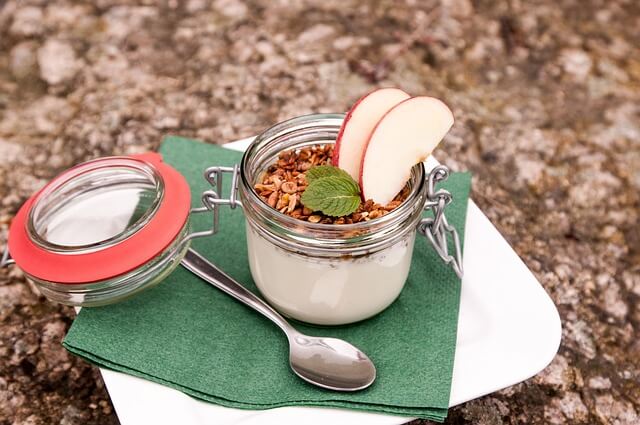Our gut does far more than just digest food—it’s a powerhouse that influences everything from our immunity to mental health. As science uncovers more about the fascinating world of the gut microbiome, we’re realizing that probiotics and prebiotics play an essential role in keeping our digestive system—and our entire body—in peak condition.
So, let’s break it down and explore why your gut needs both probiotics and prebiotics, and how you can make simple changes to support your digestive health.
Why Gut Health Matters More Than You Think
Ever heard the saying, “You are what you eat”? Well, it turns out, you are also what your gut bacteria eat! The gut microbiome consists of trillions of bacteria, both good and bad, that influence everything from digestion to mood regulation.
When the balance in our gut is off—due to stress, poor diet, or antibiotics—it can lead to issues like bloating, weakened immunity, and even mental health struggles like anxiety and depression. That’s where probiotics and prebiotics step in, acting as key players in maintaining gut harmony.
Probiotics: The Good Guys in Your Gut
Probiotics are live bacteria that provide health benefits when consumed in adequate amounts. Think of them as reinforcements for your gut—helping to crowd out harmful bacteria while improving digestion, nutrient absorption, and even mood.
Where Can You Find Probiotics?
These friendly bacteria are abundant in fermented foods like:
- Yogurt – A classic probiotic source that supports digestion.
- Kefir – A probiotic-rich, tangy drink that boosts gut health.
- Kimchi & Sauerkraut – Fermented vegetables that enhance gut flora.
- Miso & Tempeh – Soy-based foods packed with beneficial bacteria.
- Fermented Pickles – Not just delicious, but also great for your microbiome.
Taking a probiotic supplement can be helpful, especially after antibiotic use or when dealing with digestive issues. However, choosing the right strains tailored to your needs is key—some strains specifically support immunity, while others target bloating or stress management.
Prebiotics: The Fuel for Your Gut’s Good Bacteria
While probiotics introduce beneficial bacteria to your gut, prebiotics help those bacteria thrive. Prebiotics are a type of fiber that nourishes your existing gut flora, allowing the good bacteria to multiply and maintain balance.
Best Prebiotic Foods for Gut Health
To keep your gut bacteria well-fed and happy, incorporate prebiotic-rich foods such as:
- Bananas – A simple, delicious way to support digestion.
- Onions & Garlic – Flavorful and packed with prebiotic fiber.
- Leeks & Asparagus – Support healthy gut flora with essential nutrients.
- Oats & Barley – Whole grains with gut-friendly fiber.
- Apples – Rich in pectin, a powerful prebiotic fiber.
Eating a diet rich in prebiotics ensures that probiotics have the fuel they need to flourish, creating an optimal environment for gut health.
How Probiotics and Prebiotics Work Together
Probiotics and prebiotics are a dream team when it comes to gut health. Picture this: probiotics are like seeds you plant in a garden, while prebiotics act as the nourishing soil and water that help those seeds grow. Without prebiotics, probiotics wouldn’t thrive—and without probiotics, your gut flora wouldn’t be diverse enough to function effectively.
By maintaining a balance of both through your diet or supplements, you can encourage a healthier gut microbiome, leading to better digestion, stronger immunity, and even improved mental clarity.
Gut Health and Its Effect on Overall Well-Being
It’s fascinating how the gut can impact so many aspects of our health beyond digestion. Scientists call the gut the “second brain” due to its influence on mood and mental health. The gut produces neurotransmitters like serotonin, the “feel-good” hormone, showing that our digestive system plays a huge role in emotional well-being.
Additionally, research has linked gut health to conditions like:
- Stronger Immunity – A well-balanced microbiome protects against infections.
- Better Mental Health – Reduced anxiety and depression symptoms.
- Improved Digestion – Less bloating, gas, and discomfort.
- Weight Regulation – A healthy gut may aid in weight management.
With these benefits in mind, prioritizing gut health isn’t just about digestion—it’s about supporting overall wellness from the inside out.
Tips to Maintain a Healthy Gut
Want to give your gut the love it deserves? Here are simple yet effective strategies to keep your microbiome thriving:
- Eat More Fiber – Load up on fruits, vegetables, and whole grains.
- Include Fermented Foods – Yogurt, kimchi, and kefir are great choices.
- Hydrate Properly – Water helps your digestive system function smoothly.
- Reduce Processed Foods – Cut back on sugar and artificial additives.
- Manage Stress – Chronic stress negatively impacts gut health.
- Get Enough Sleep – Poor sleep can throw off gut bacteria balance.
- Be Mindful of Antibiotics – Overuse can deplete good bacteria, so use wisely.
By incorporating these habits, you can create an environment where probiotics and prebiotics thrive, leading to improved digestion, a stronger immune system, and even better mood stability.
Final Thoughts: A Healthier Gut, A Healthier You
Your gut is more powerful than you think—it affects everything from immunity to emotional health. By making intentional choices to support a balanced gut microbiome with the right mix of probiotics and prebiotics, you’re setting the foundation for long-term health and well-being.
So, the next time you enjoy a bowl of yogurt or munch on an apple, know that you’re doing more than just satisfying hunger—you’re actively supporting your body’s natural balance. Here’s to a healthier gut and a happier you!














